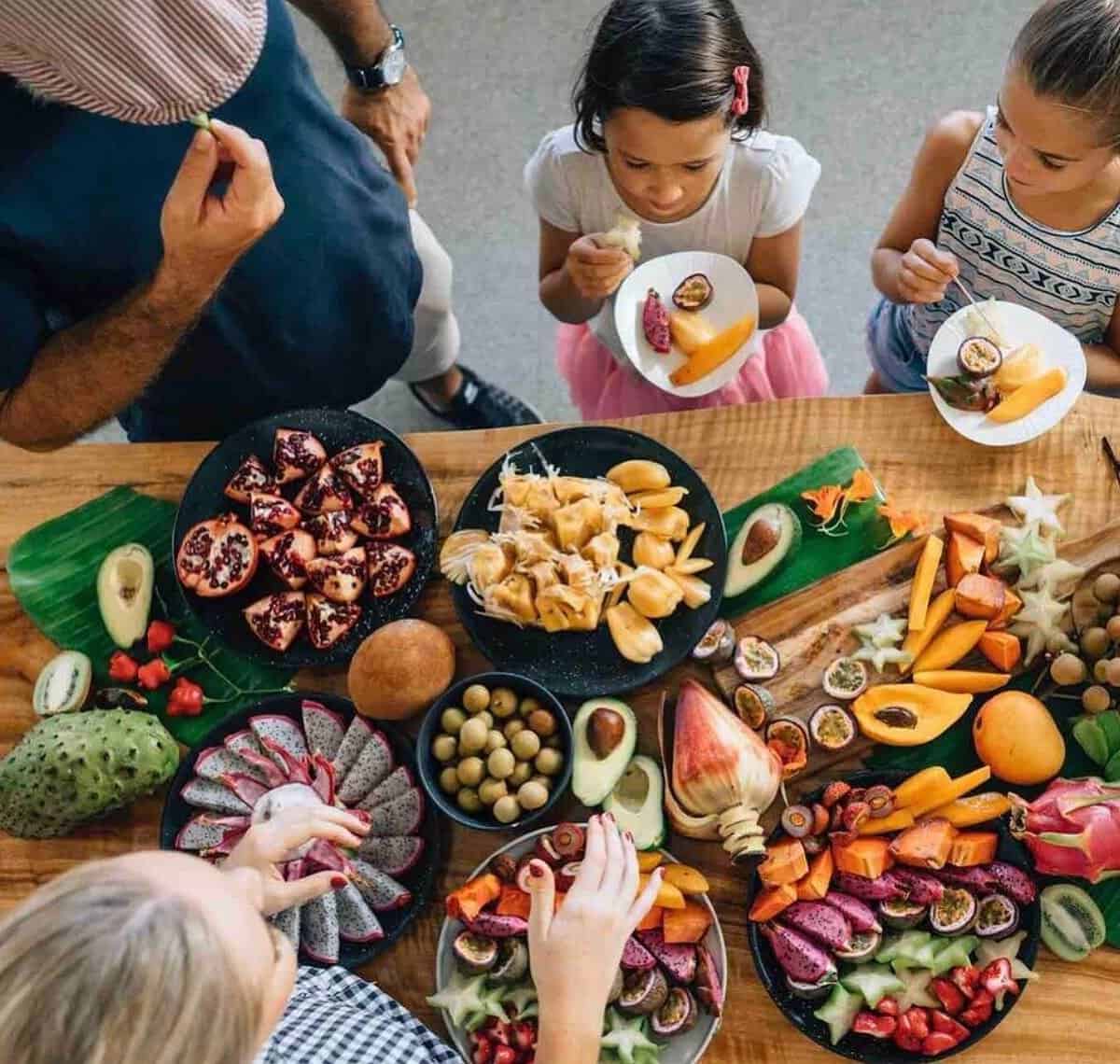Embark on a Flavorful Journey Through Tropical Fruits World
Hey there, awesome parents! Welcome to a vibrant adventure that will tickle your taste buds and expand your family’s fruit horizons. If you ever find yourself in the produce aisle, staring at the ever-mysterious dragon fruit or wondering how to tackle a horned melon, this guide is for you!
What Makes Tropical Fruits a Family Favorite?
There’s something magical about tropical fruits that can transport us to sunny skies and sandy beaches with just one bite. Not only do they make for a fantastic culinary experience, but they’re also bursting with vitamins, minerals, and antioxidants that are essential for keeping your little adventurers healthy and energetic.
The Health Benefits of Tropical Fruits
Before you dive into the countless flavors that tropical fruits have to offer, let’s talk about why they are great for your family. Tropical fruits are typically high in Vitamin C, fiber, and hydration – perfect for an immune system boost and maintaining digestive health. Plus, they’re naturally sweet, making them an excellent alternative to processed snacks for your kids!
Topical Fruit Glossary to Get You Started
With the world of tropical fruits being so vast and colorful, it’s helpful to have a little glossary to guide your way. Here are a few exotic treasures you might encounter:
- Mango: This juicy, sweet fruit is loved by kids worldwide and is terrific in smoothies, salads, or just on its own.
- Papaya: A soft, orange fruit that’s a digestive wonder with its enzyme papain, making it great for tiny tummies.
- Lychee: Small and round with a floral taste, these fruits are fun to peel and eat, offering a burst of refreshing sweetness.
- Passionfruit: With a tangy and uniquely aromatic pulp, it’s perfect for igniting your child’s taste curiosities.
How to Select and Store Tropical Fruits for Maximum Freshness
Selecting and storing tropical fruits correctly ensures you get the best flavors and nutrition. Here’s a quick how-to for some common tropical fruits:
- Mangoes should be slightly soft to the touch and fragrant near the stem. Store unripe mangoes at room temperature until they ripen, then move them to the fridge.
- Papayas are ripe when their skin turns yellow to orange. Keep unripe papayas at room temperature, and refrigerate once ripe to prolong their shelf life.
- Lychees are best when the skin is pink-red and firm, but not hard. Store them in a plastic bag in the fridge to keep them fresh.
Introducing Tropical Fruits to Your Little Ones
Introducing new fruits to children can be a fun and educational experience. Start by incorporating tropical fruits into familiar foods. How about adding some mango chunks to yogurt, or blending papaya into a colorful smoothie? Show your kids pictures of the fruit trees and talk about where they grow – it’s a mini geography lesson with a delicious reward!
Create a Tropical Fruit Tasting Party
Why not make trying new fruits an event? Gather an assortment of tropical fruits, cut them into bite-sized pieces, and have a tasting party. You can rate the fruits, describe the flavors, and even draw pictures of them. It’s a delightful way to encourage healthy eating habits.
So there you have it, enthusiastic parents! A glimpse into the enchanting world of tropical fruits. Stay tuned for more juicy details, fun activities, and delicious recipes that will make your family’s journey through tropical fruits as enjoyable as a beach vacation!
But don’t let the journey end here! In the next section, we’ll take an even deeper dive into more exotic fruits, explore fun facts that will impress your kids, and share refreshing tropical fruit recipes that will become your family’s new favorites. Get ready to transform snack time into an exotic escape!

Five Essential Tips for Parents Preparing for the Tropical Fruits World
As you embark on this exciting journey into the world of tropical fruits with your family, here are five essential tips to ensure a smooth and enjoyable experience:
1. Educating Your Family about Tropical Fruit Safety
Before diving in, it’s important to know that some tropical fruits have specific handling requirements or may even cause allergies. For example, the spiky skin of durian or jackfruit needs careful handling, and the sap can sometimes cause skin irritation. Make sure to educate your family about these aspects to prevent any mishaps.
2. Involve Your Kids in the Selection Process
Turn the fruit selection process into a game. Encourage your children to choose a fruit based on its color, shape, or aroma. This could be a wonderful opportunity to discuss the importance of a balanced diet and the role of fruits in it.
3. Picking the Perfect Ripeness
Understanding the ripeness of tropical fruits can be tricky. Some fruits, like avocados, may ripen after they’re picked, while others, such as pineapples, do not. Engage your kids by letting them gently squeeze the fruits and smell them to determine their readiness for consumption.
4. Creative Presentation Is Key
Kids eat with their eyes first, so making tropical fruits visually appealing can spark their interest. Create fun shapes, skewers, or arrange them in colorful patterns on the plate. This can turn a simple snack into an exciting and tempting treat!
5. Link the Experience to Learning
From geographical origin stories to historical facts about fruit cultivation, there are endless ways to make tropical fruit tasting an enlightening experience. Teach your children about different cultures and climates where these fruits are grown. You can even plan a themed dinner night based on a tropical fruit’s country of origin!
With these tips and the previous insights, you’re now armed with the knowledge to help your family explore the tropical fruits world with confidence and joy. Remember, the goal is not just to introduce new flavors but to nurture curiosity, create bonding opportunities, and instill healthy eating habits for a lifetime. So grab your fruit peelers, get your fruit bowls ready, and let the tropical taste adventure begin!
For more great fun click here. For more information see here
Disclaimer
The articles available via our website provide general information only and we strongly urge readers to exercise caution and conduct their own thorough research and fact-checking. The information presented should not be taken as absolute truth, and, to the maximum extent permitted by law, we will not be held liable for any inaccuracies or errors in the content. It is essential for individuals to independently verify and validate the information before making any decisions or taking any actions based on the articles.




